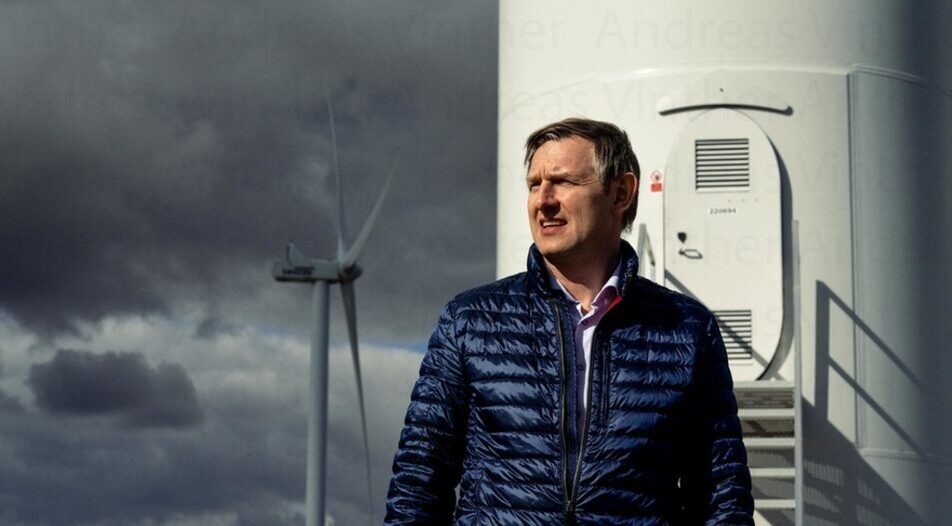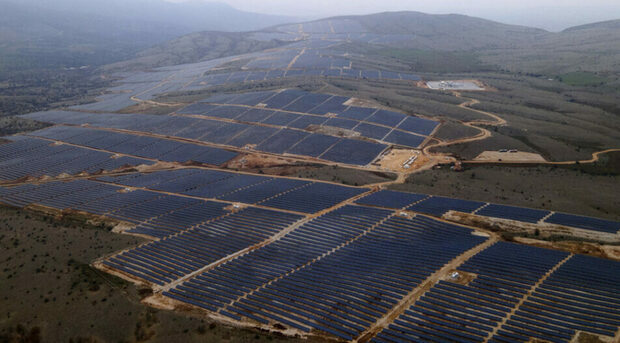Renalfa is a Bulgarian investment group in the field of clean energy and electric mobility. Through its subsidiary Solarpro, the group is a leading installer, and provider of EPC and O&M services, as well as smart solutions and energy management systems in Europe. Eurowind Energy A/S operates energy facilities in 15 European countries and the United States. The Danish company has built over 2.5 GW of capacity in Europe and already owns a small solar park in Bulgaria. The company is one of the first in Europe to invest in large-scale green hydrogen (PtX) projects.
Eurowind Energy is one of the leading energy companies in Northwestern Europe, but you are still unknown in Bulgaria as you operate a relatively small solar park. What are your future intentions?
I can say that we see great potential in Eastern Europe. We have had a market presence here for years - for example, we are in Romania since 2011, and it was a natural step to focus on Bulgaria. The country has great opportunities for the development of renewable energy sources and now is the right time to invest. In addition, we have found a reliable partner in the face of Renalfa, who has sufficient experience in the sector and good knowledge of the local market and regulatory framework, which is extremely important to us. Our joint company is called EURA energy.
What kind of investment are you planning?
We are mainly focused on wind and solar energy projects. Also, we have experience with Power-to-X technology for the production of hydrogen from renewable electricity, and we believe that we will also be able to develop such a project here. Of course, we are also thinking about energy storage installations.
Can you share some more specific parameters for your plans?
We are currently working on a goal for 1 GW of installed RES power in Bulgaria. We also believe that in the next decade we can reach 2 GW of capacity. These are large projects that will be very cost-effective.
We are starting with a project of 250 megawatts of solar power near the Yambol village of Tenevo. We expect the plant to be fully ready in 2023. There will be a storage system which will make us one of the first such plants.
How big do you expect the investment to be?
It is difficult to say from now on, but it will probably be in the range of 100-150 million euros.
Will you rely on European grants for this project? It is expected that there will be such programs in the Bulgarian Recovery and Resilience Plan.
No, we will work only with private capital. Of course, if it is a pilot, innovative project with new technology, whose business model is uncertain, we can apply for the programs. It may also be necessary for the batteries. But it is much more important for these European funds to be invested in the transmission network and cross-border connections so that the new capacities can be integrated more easily and quickly.
Do you think that the investment environment in Bulgaria is good, and what is your assessment of the country's potential in the context of energy transformation?
We are careful in this regard. That is why we decided to work together with a local partner who is familiar with the environment and the political system. We know that not everything is perfect here, but we also know that things are getting better. We decided to enter the Bulgarian market precisely because we believe that the improvement of the environment will continue.
Still, there's a strong skepticism about RES in Bulgaria. It is often claimed that renewable energy is volatile and cannot be relied on.
I will say that all the projects we are planning in Bulgaria have no state subsidy. They will be realized entirely on a market basis, and not because of others, but because renewable energy is currently the cheapest possible energy. And it will be competitive enough in the market. And the resilience of our model is further enhanced by the combination of wind and solar power along with energy storage batteries.
It is very important to note that the price of energy from a new photovoltaic plant with batteries is much lower than the one from a new NPP. And besides, the investment is much easier and faster.
However, Bulgaria intends to build new nuclear facilities
I believe that nuclear energy is acceptable if it meets the following conditions. First of all, it must be supported by the local community. Second - such a project must be implemented entirely on market terms. And, of course, it must be ensured that there is no pollution, especially nuclear waste. If all this is done and there is an investor, I think developing a nuclear power plant is not a problem. But I don't think it's realistic for all this to happen.
If the competition between technologies is entirely market-based, I do not doubt that RES will be the most profitable. If the NPP or TPP is subsidized by the state, then the bill is different.
How will we deal with the variable production of RES?
First of all, through stock trading and network connectivity. Thus, in case of a lack of sun and wind in certain regions, it will be possible to supply energy from other regions. Thus, different sources such as HPPs, NPPs, etc. can be combined.
Is Green Hydrogen the solution to achieving Net Zero Economy?
I believe that we must do everything we can to ensure the direct electrification of the economy. But there will be industries where this will not be possible, at least soon. And the most effective way to achieve Net Zero in them is through green hydrogen, created from renewable electricity.
These technologies are evolving now and the goal is to achieve sufficient cost efficiency on a large scale. I am convinced that this will be possible soon.
How much does green hydrogen production cost and when will it become profitable?
Generally speaking, the price should be equal to that of blue hydrogen, which is produced from natural gas. This "competition", on the one hand, can be supported by CO2 emissions prices and, on the other hand, by lowering the price of electrolyzers for green hydrogen production.
What are the most advanced green hydrogen projects in Europe?
We have such a project in Denmark - for a green hydrogen hub. It is on the list of important pan-European projects in this area. It is based on the storage of green hydrogen, obtained from the energy of renewable energy sources, which is pumped into underground salt caves. Compressed air also accumulated through renewable energy sources in neighboring salt caves. As needed, when there is no sun or wind, hydrogen and air can be used to generate electricity. This ensures a secure and 100% carbon-neutral power supply on a large scale.
Are you planning a similar project in Bulgaria?
Yes, we are considering the possibility of such investments here as well. But I still can't say specific areas where this would be possible. It is necessary to have a combination of competitive production of solar and wind electricity in one place to achieve the corresponding efficiency.
Will we be able to produce green hydrogen ourselves or will we be dependent on imports again - for example from North Africa and Saudi Arabia?
It depends on the politicians. If they fail to prepare the appropriate regulatory framework for the production of enough green energy to be used for hydrogen, we will certainly have to import. Years ago it was important to have subsidies for the development of new RES capacities, and now the procedures must happen quickly and easily. And if this does not happen quickly, others will surely overtake us. And it is no wonder that Europe again has to rely on unstable regimes such as those in regions such as North Africa and the Middle East.
In Denmark, you are also working on a district heating project that includes RES. Can you tell us more about it?
In Northern Europe, there is a perfect combination of wind production profile and heat demand. The idea is that there is more wind right in the winter when it is the heating season. The conditions are similar in Bulgaria. That is why we directly connect our wind turbines to heat pumps to provide central heat supply at the local level. This brings direct benefits to consumers because they will have lower heating bills - heat production with heat pumps is much cheaper than burning natural gas and coal.
The COP26 forum ended a few days ago. What is your assessment of the reached agreements?
I think it is very positive that leaders are coming together to discuss the climate. But what is new about this meeting was mentioning coal for the first time. It was not said that they will be completely stopped, but at least that it will be reduced.
What would you say to the new Bulgarian energy officials?
They certainly need to focus on new energy sources, because this will ensure competitiveness for the economy in the future. Jobs will be created where there is cheap and affordable green energy. Politicians need to understand this. All international companies that choose where to invest, look primarily at what will be the energy sources. And the more polluting they are, the less likely they are to choose this country.
How do you imagine Europe in 10 years?
Certainly with much more renewable energy and advanced technology for hydrogen flowing across the continent. Ten years is a short time to replace much of the infrastructure, but a new beginning will be made.
Renalfa is a Bulgarian investment group in the field of clean energy and electric mobility. Through its subsidiary Solarpro, the group is a leading installer, and provider of EPC and O&M services, as well as smart solutions and energy management systems in Europe. Eurowind Energy A/S operates energy facilities in 15 European countries and the United States. The Danish company has built over 2.5 GW of capacity in Europe and already owns a small solar park in Bulgaria. The company is one of the first in Europe to invest in large-scale green hydrogen (PtX) projects.












